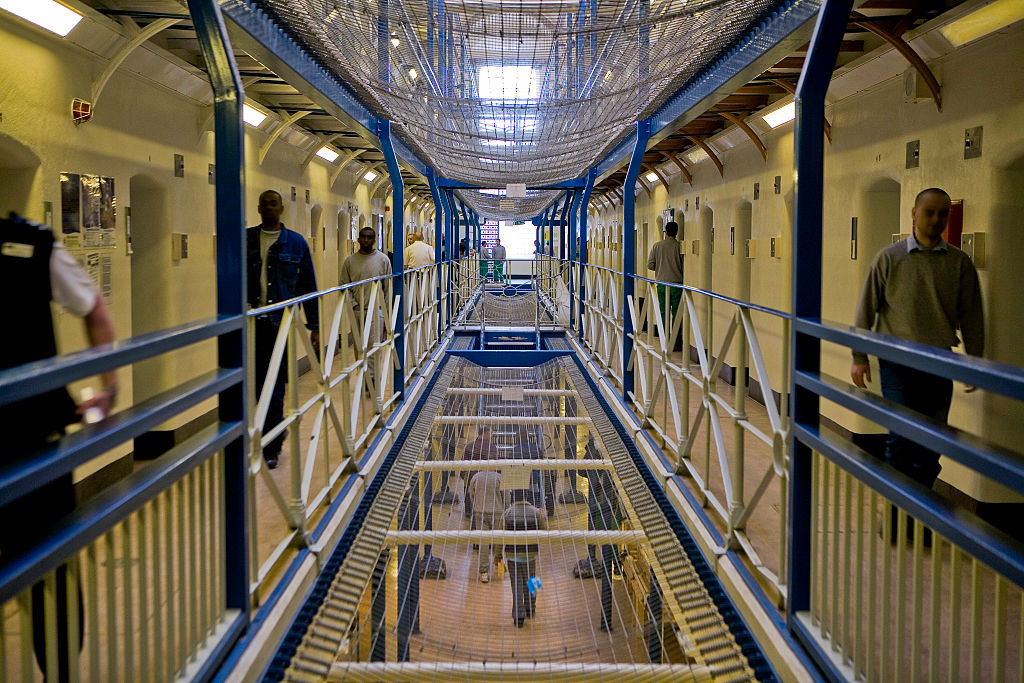Prison and probation staffing is approaching dangerously low levels’ said the Ministry of Justice in a document they published by mistake this week. It’s hardly surprising to those of us who know about our failing prison system. In June, the Justice Select Committee published the results of a detailed survey of prison staff showing that half of frontline staff don’t feel safe at work.
Frontline staff are ‘band 3-5’; the officers, senior officers and custodial managers who spend their days working with prisoners. Their responses make grim reading. Over 80 per cent said morale was poor in their prison. More than 60 per cent of those officers said their mental health wasn’t taken seriously at work. Prisons are traumatising and frightening places, where a handful of officers can often be in charge of hundreds of prisoners, relying on the inmates’ consent to maintain order. Mental health absences among prison officers have doubled in the past five years, and 14.6 per cent quit the prison system each year.
Why does this matter? Our prisons are supposed to keep prisoners safe, ensure they undertake purposeful activity and are rehabilitated so they are less likely to reoffend on release than when they were jailed. Understaffing impedes every aspect of this mission, with prison staff focused on maintaining the security of the establishment.
With fewer staff the chances of hostage-taking, riots and serious assaults will only increase
In 2022, I worked as a consultant, looking at how well officers were reducing self-harm, suicide and recidivism inside their prison. The government allocates a ‘key worker’ to every prisoner. This officer is expected to have regular, structured and purposeful contact with the prisoner. What I and my colleagues saw instead were sporadic interactions lacking depth and meaning. Understaffing means that staff don’t have the time to have proper interactions with prisoners, and often miss their allocated meetings as a result of being moved to cover gaps elsewhere in the prison. When I was a prisoner at HMP Wandsworth in 2020, my first key worker retired within a fortnight of my arrival, and I wasn’t allocated another one for six months. This experience was not uncommon.
Lack of time and attention from staff means that interactions with prisoners can be needlessly confrontational. While inspecting a prison in the North of England, I met with prisoners who had been labelled as ‘difficult’ or ‘trouble’ by officers when in fact they had Autism Spectrum diagnoses mentioned in their notes. If the staff had the time to prepare for meetings, those interactions could be positive and constructive. At its worst, rushed inattention can kill. A man I knew well at HMP Wandsworth returned to the prison after his sentencing. His mother had recently died. When he asked an officer to witness his will, no alarms were raised, and the next morning the prisoner was found dead.
At night, British prisons are even more lightly staffed. After all, the prisoners are locked away. The wings are often patrolled by ‘no stripe’ officers who aren’t allowed to unlock doors. This meant that when a prisoner attacked their cellmate on Wandsworth’s H Wing in August 2020, we listened to one man screaming for help while an officer asked the attacker to stop from the safety of the other side of the cell door. It took over a quarter of an hour before other officers arrived, the cell door opened and the attack was brought to an end. Another man woke one night to find his cellmate hanging himself and spent 40 minutes holding him aloft and screaming for help before an officer unlocked the cell door. Similarly, this lack of staffing makes hostage incidents which threaten lives and the basic functioning of prisons ever more likely.
A prison governor’s first duty is to ensure the security of the establishment. So when a prison is short-staffed, non-essential activities are cut first. Better to ensure everyone on a wing gets lunch than to worry about keeping the library or education facilities open. Eighty per cent of frontline officers believe there aren’t enough staff to ensure prisoners can engage in purposeful activities – the catch-all term for work, training and education. These activities are crucial for reducing reoffending. Prisoners who have any employment at all in the year after release are up to 10 percentage points less likely to reoffend. Reoffending costs over £18 billion a year, so prisoners developing skills and building the habit of work while inside benefits all of us.
Instead, our understaffed prisons lock inmates away for 23 hours a day, limiting their access to purposeful activities, and even to exercise and family contact. HM Prison and Probation service tells us that violence is more likely to occur where there is less purpose and lower staff oversight. Understaffing means the entire closed prison system is at risk of violence, and with fewer staff available the chances of hostage-taking, riots and serious assaults will only increase.
The government promises to recruit a further 5,000 prison officers by the middle of the decade. Unfortunately, over 3,200 are leaving our prisons every year, so even if they reach this target we would expect overall numbers of frontline staff to decline. Staff shortages contribute to officers feeling unsafe, unsupported and excessively stressed. Unless this changes, staff will continue to leave, and our prisons will become more and more dangerous for everyone in them.






Comments